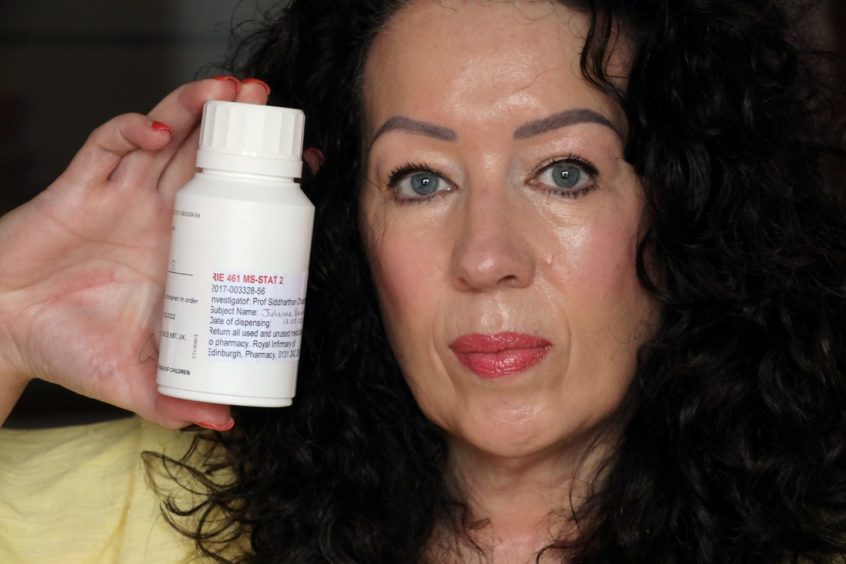A Fife woman living with multiple sclerosis (MS) has shared her experience of a promising new trial for people living with the condition.
Julienne Beaumont from Kirkcaldy was diagnosed with relapsing MS in 2011.
She has secondary progressive MS and has been participating in the MS-STAT2 trial since 2019.
The 55-year-old explains: “I first started experiencing symptoms in my twenties and went to the doctor with pain in my legs and shoulders.
“But it was put down to things such as trapped nerves or shin splints.

“It took around twenty years to be diagnosed with MS.
“It’s not something I had thought about because I didn’t know any better but I eventually was sent for an MRI and was diagnosed.
“I first heard about the trial as I like to keep up with what the MS Society is doing so found out about it through them.
“I’ve heard of people being prescribed similar things in the past by their neurologists but I thought why not take part in the trial and help everyone through research?”
Slowing disability progression
The trial will test if the inexpensive treatment simvastatin – currently used to treat high cholesterol – can slow disability progression over a three-year period.
It is a double-blind trial, meaning half the participants take the drug and the others are on the placebo.
The trial began in 2017 and involves 1,050 people with secondary progressive MS. It will take six years to complete.

Julienne continues: “I think with secondary progressive MS you tend to get told that things have moved past relapsing MS and that’s it – you don’t really see a neurologist anymore because there are so few treatment options.
“That’s something that’s made the trial so good from my point of view.
“I get to see a neurologist or nurse regularly and get a ‘mini health check’ when I’m there.
“That means symptoms that might not otherwise get checked are being looked at which is great.”
Hope for the future
Currently there is only one treatment available in Scotland for people living with secondary progressive MS.
Siponimod was approved in 2020 for use on the NHS in Scotland. If this current trial is successful, simvastatin could join it as one of the first treatments licensed for secondary progressive MS and broaden treatment options.
“I would encourage anyone to find out more about it and give it a go.
More people being involved and more trials can only be a good thing.
“Obviously I don’t know whether I’m on the drug or placebo but you feel good in yourself just for taking part,” Julienne says.
“And without trials like this we’d never move any further forward.
“I hope that this treatment is found to be effective but whether or not I’ve been taking the drug it’s made me feel more positive.”
